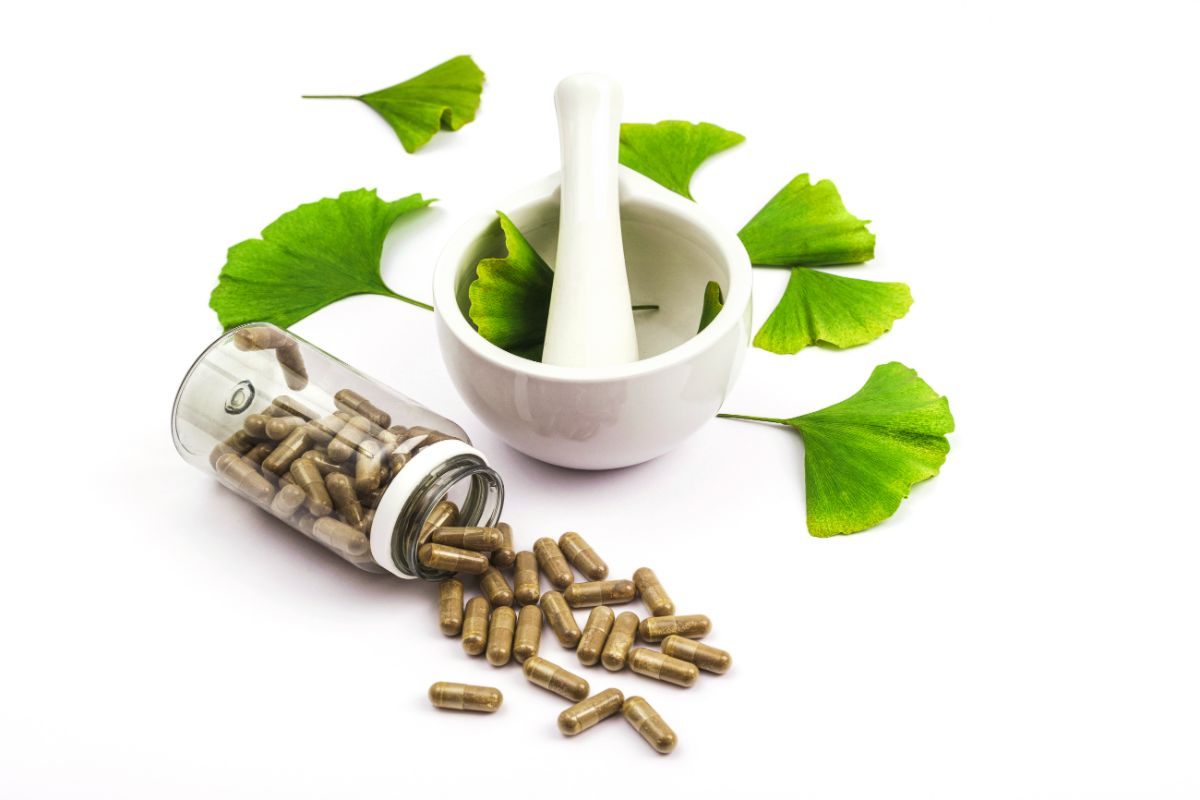Overview
In this article, we delve into the potential usefulness of natural supplements in the context of Alzheimer’s disease. Our focus revolves around the benefits offered by organic substances such as Bacopa Monnieri, Omega-3 fatty acids, curcumin, ginkgo biloba, and vitamin E.
Omega-3 fatty acids take center stage in boosting brain function, while Bacopa Monnieri emerges as a memory enhancer that also aids in stress reduction. We also explore the neuroprotective properties associated with Ginkgo biloba, the potential of curcumin to enhance memory and reduce plaque accumulation and the role of vitamin E in slowing the progression of Alzheimer’s disease.
Alzheimer’s disease can be an incredibly challenging condition, especially considering the gradual loss of memory, cognitive decline, and behavioral changes that individuals experience. While there is currently no cure for this devastating brain disease, there is hope in the form of natural supplements for Alzheimer’s patients that have shown promising support.
In this article, we will delve into the realm of natural supplements and their potential benefits for your neurological health. Discovering these supplements may provide insights into alternative approaches that can contribute to supporting cognitive function and overall brain well-being.
Bacopa Monnieri, also known as Brahmi, has been a revered herb in Ayurvedic medicine for ages, valued for its ability to enhance memory and cognitive function. This remarkable herb contains bacosides, compounds known for their neuroprotective properties.
Users of Bacopa Monnieri have reported a multitude of benefits, including improved attention, memory, and mental agility, particularly for individuals facing cognitive challenges associated with conditions like Alzheimer’s. Additionally, it has shown promise in reducing symptoms of anxiety and depression.
As the leading provider of Bacopa Monnieri tea in the Philippines, we strive to offer a holistic approach to maintaining brain function and combating stress. Our dedicated team ensures that our products are sourced from trusted suppliers, providing you with alternative solutions for Alzheimer’s and beyond.
We recognize that not all brain-enhancing products are accessible to everyone due to financial constraints. That’s why we have made it our mission to offer something within reach – Bacopa Monnieri herbal tea and Bacopa Monnieri Infused Sweet Almond Oil.
Now, more people can experience the remarkable benefits of Bacopa Monnieri and unlock their brain’s true potential. Our satisfied clients have attested to the wonders of our tea, which can boost overall health and vitality.
Read also: 6 Benefits of Drinking Herbal Tea Daily

Omega-3 fatty acids, commonly found in fish oil, are likely familiar to you. These essential lipids play a crucial role in supporting optimal brain function. Extensive research has shown that omega-3 fatty acids can also enhance mental performance. You can get find this in salmon, mackerel, and sardines.
Studies have revealed that these fatty acids can have a protective effect against cognitive disorders, particularly in older individuals and those with Alzheimer’s disease, by reducing brain inflammation. Additionally, omega-3 supplements have shown promise in promoting the formation of new neurons, thereby improving overall brain function.
Further reading: 10 Foods to Support Memory
To assist you with your diet, a healthcare expert must be consulted. They will guide you with the proper Omega-3 intake you need for maximum effectiveness in promoting mental agility in people with Alzheimer’s disease (AD).
Curcumin, the primary component found in turmeric, has garnered significant attention as a natural supplement for Alzheimer’s patients. Renowned for its anti-inflammatory and antioxidant qualities, curcumin has shown promise in improving memory and reducing the accumulation of beta-amyloid plaque, a hallmark of Alzheimer’s pathology. This can be attributed to its ability to combat oxidative stress associated with AD.
Incorporating foods rich in curcumin into your diet provides a natural way to harness its potential benefits. Here are some examples of curcumin-rich foods to consider:
It’s important to note that curcumin’s limited bioavailability can hamper its effectiveness. To maximize curcumin absorption, consider selecting a supplement with higher bioavailability or consuming turmeric alongside black pepper, which has been shown to enhance curcumin absorption.

You may already be familiar with ginkgo biloba as a supplement for your skincare goals, as it is known to enhance skin moisture retention, and smoothness, and reduce roughness. However, there’s more to ginkgo biloba than just skincare benefits – it can also positively impact your brain’s activity and performance.
Studies have found that ginkgo biloba may have neuroprotective benefits and improve mental brain function for AD patients. Its potential benefits include increasing cerebral blood flow, serving as an antioxidant, and protecting neurons from disruption.
Just like its role in skincare, Vitamin E offers more than just aesthetic benefits – it can also play a significant role in reducing the progression of Alzheimer’s disease.
The rich antioxidant properties of Vitamin E make it particularly advantageous for individuals affected by AD. By protecting cells from damage caused by free radicals, which are highly reactive chemicals that contribute to oxidative stress and inflammation in the body, Vitamin E helps maintain the integrity of our brain cells and guards against disease-related damage. Additionally, it has the potential to slow down the deterioration of functional abilities exhibited by Alzheimer’s patients, improving their daily living activities.
To incorporate Vitamin E into your diet, consider these natural food sources:
While natural supplements may offer certain benefits for Alzheimer’s patients, it is important to note that they should not be used as a substitute for established medical therapies or interventions. It is crucial to have an open and thorough discussion with your trusted healthcare provider, particularly one who is familiar with Alzheimer’s disease, before embarking on any new supplement program.
By working closely with your healthcare professional, you can ensure that any supplement you consider aligns with your overall treatment plan and addresses your specific needs. Their expertise will guide you in making informed decisions and help you navigate the complex landscape of Alzheimer’s care.
If you are interested in exploring organic ways to support your brain health, we invite you to try our Bacopa Monnieri tea. Check out our online shop today!

What are natural ingredients that support healthy hair from root to ti

What are the early signs of dementia in men that you shouldn’t ignor

What are the lifestyle recommendations for those with Alzheimer’

Overview This article talks about the different stages of dementia and
Oyuncular için güvenin simgesi haline gelen bettilt giriş politikaları memnuniyet sağlıyor.
Modern tasarımıyla dikkat çeken bettilt sürümü kullanıcıların ilgisini çekiyor.
Ruletin popülaritesi, bettilt bonus kodu tarafından düzenlenen canlı turnuvalarla daha da artmıştır.
Modern video slotları etkileyici grafiklerle birleştiğinde, bahsegel deneme bonusu deneyimi daha da heyecanlı hale getirir.
Güncel kalmak isteyenler bahsegel üzerinden bağlantı kuruyor.
Daha çok eğlence isteyen oyuncular için bettilt oldukça cazip.
Gelecek yılki sürüm olan bettilt yeni özelliklerle geliyor.